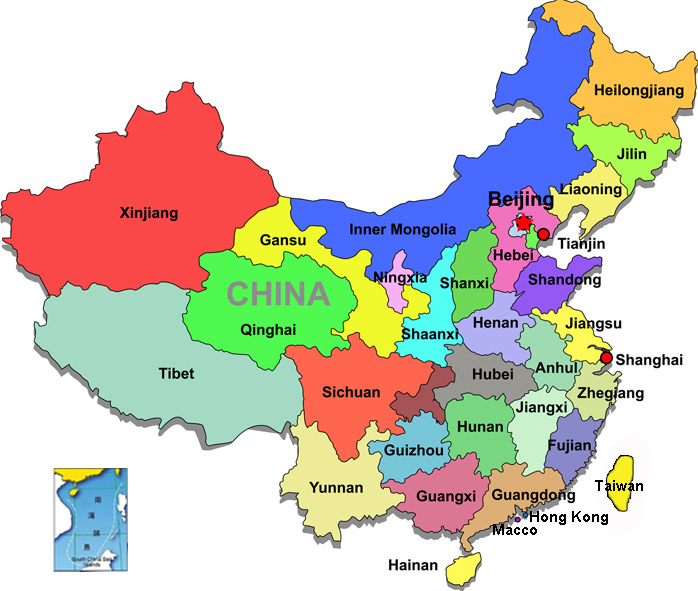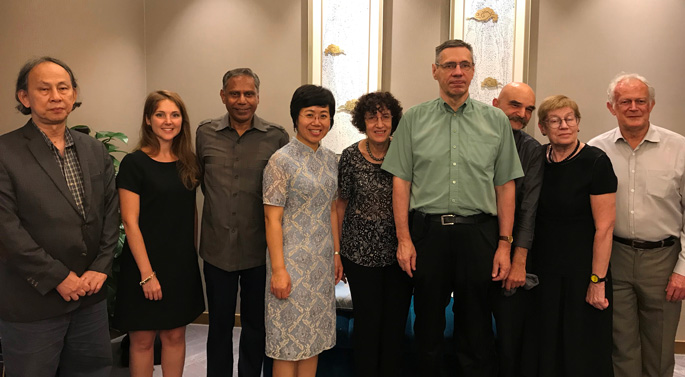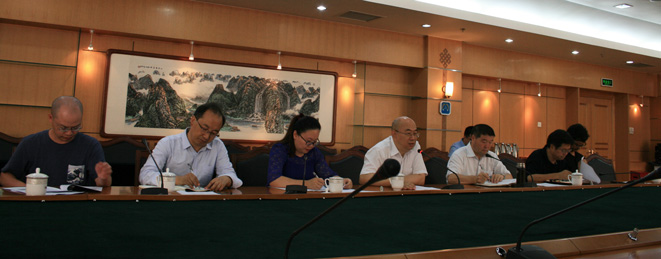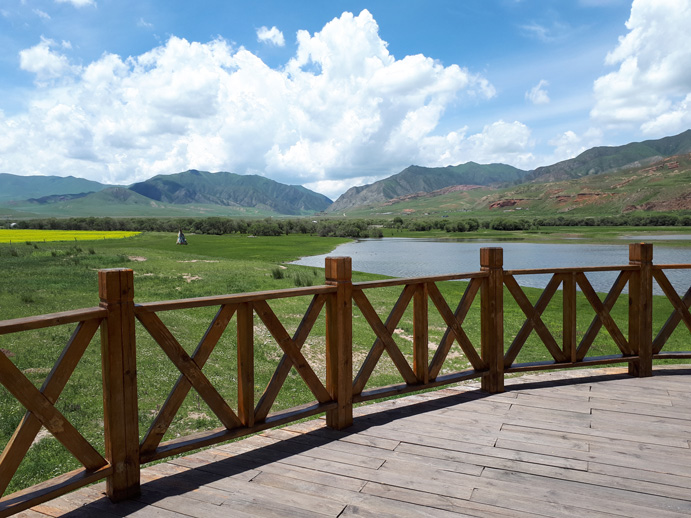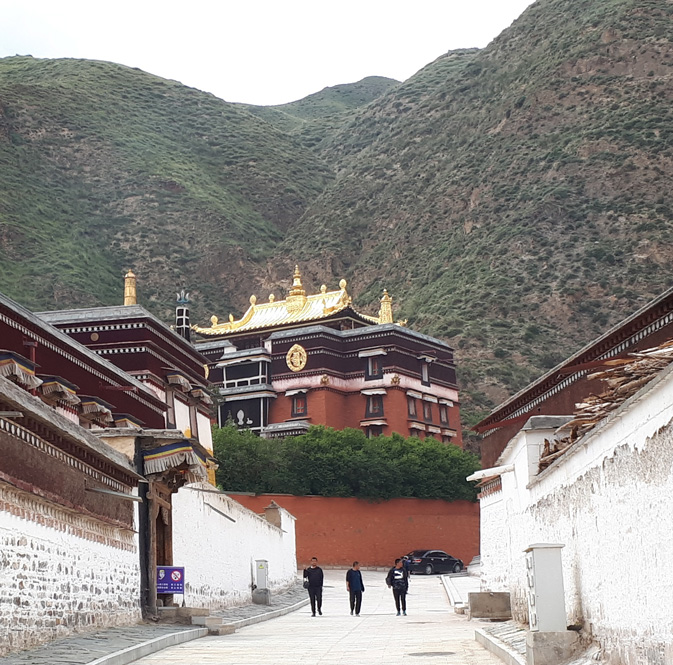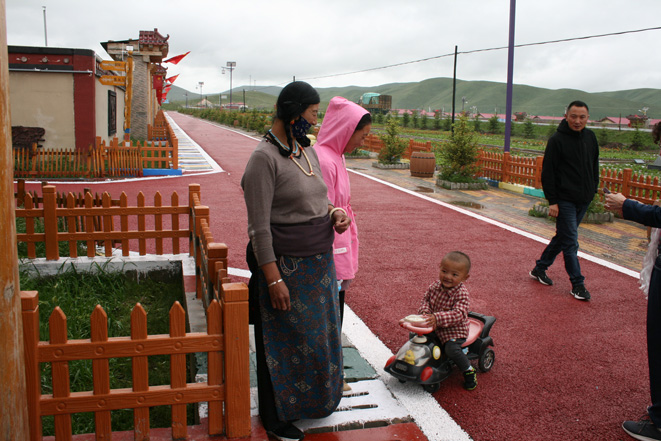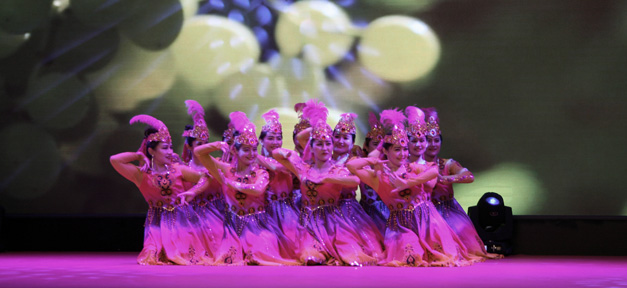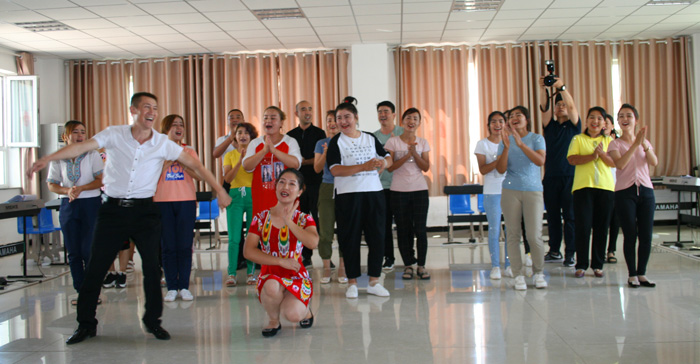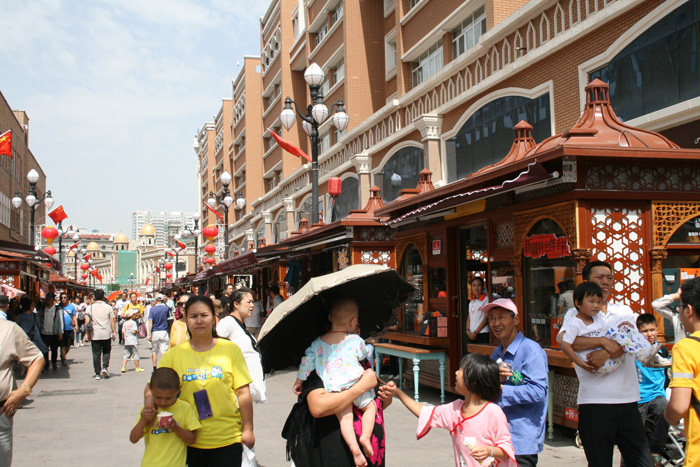by Christine Bierre, Bierrechristine@gmail.com
Hardly had the breakthroughs of the Xi-Trump meeting occurred at the G20 Summit in Osaka, Japan than London and its neo-conservative allies, in and out of the Trump administration, escalated a new flank in the war of nerves against China. Following the demonization of the Belt and Road Initiative (BRI) by London’s neo-con and liberal acolytes in the United States and Europe, the trade-war hype, the Huawei saga, and the Hong Kong mass demo destabilization, in come accusations of mass torture in Xinjiang.
Attacks have been growing in recent months against China’s counter-terrorist offensive in this region, one that has suffered the most from the spillover of terrorism spawned in recent years’ Middle East wars. A Uyghur contingent that had joined ISIS and Al Qaeda in those wars brought that terrorism home to China. Accusations have been made that China has illegally jailed 1-3 million Uyghurs, and is subjecting them to torture, brainwashing and even organ harvesting!

Photo Credit: Adam Ludwiczak
These accusations came to a head on July 10 when a group of 22 nations (18 European nations joined by Japan, Australia, Canada and New Zealand), addressed a letter to Michelle Bachelet, the United Nations High Commissioner for Human Rights, noting “disturbing reports of large-scale arbitrary detentions of Uyghurs, and other Muslim and minority communities.” On July 13, however, a group of 37 other countries sent their own letter to the UN authorities, backing China and praising its government for having invited diplomats, think-tanks and media to visit Xinjiang, noting that “what they saw and heard in Xinjiang was in total contradiction with what had been reported by certain Western media.” Among the signers were ten Muslim States!

Foreign Affairs Ministry in Beijing with Wang Lixin Deputy director general at the Department of External Security Affairs and international tour of journalists.
The Chinese government has, in fact, successfully conducted a counter-terror operation and is continuing to organize visits to Xinjiang. Between July 7 and 14, representing the French Schiller Institute’s China desk and as a journalist who writes on strategic and defense questions, this author had the opportunity of participating in one such visit, with a very interesting group of experts. They were representatives from Russia, Italy, France, Poland, Pakistan, Thailand, and New Zealand, including journalists and academic think-tank experts, most of whom had in-depth experience and knowledge of China. Our eight-day “Information Mission” concentrated on China’s policies towards ethnic and religious minorities in general, and on its policies of counter-terrorism in the Xinjiang Uyghur Autonomous Region (XUAR).
China’s Policies Towards Minorities
Our tour started with seminars at the Institute of Tibetology and the Institute of Borderline States, in Beijing. China, with its more than 5,000-year history, is a centralized but multi-ethnic and multi-religious state, home to 56 different ethnic groups, which benefit from having equal rights with the Han majority (92%). China has created 5 autonomous regions and 30 autonomous prefectures, in which minorities are granted some advantages beyond those available to the Han majority, such as favorable quotas to enter schools and greater access to jobs in the public companies as well as an exemption from the “one child only” policy that had been applied to the Han. Religious practices are strongly protected as long as they don’t promote separatist or extremist ideas. The Koran, the Bible and other scriptures are published by the State and are accessible through the internet and available at all libraries. The Muslim religion is practiced in 39,000 mosques in China (25,000 in Xinjiang alone) and requires only certification of the Imams.

Seminar at the Institute of Tibetology in Beijing.
The contribution of ethnic minorities to the particularly rich cultural and religious heritage of China is fully recognized by the State. However, due to the difficulty of reaching out to them in the border lands of China (e.g., Mongolia, Tibet, Xinjiang) and the daunting challenges of their geography, economic development has lagged, a weakness which the enemies of China have always exploited.
Xinjiang has been part of China ever since the Han dynasty, under the name of “Western territories.” But, at the end of the 19th and beginning of the 20th century, taking advantage of China’s weakness, the British, the Russians, and the Japanese fought for the control of this area in what was then called the “Great Game.” The ideologies of Pan-Turkism and Pan-Islamism promoted by the different camps gave birth to a movement in favor of an “Oriental Turkestan.”

Xiahe county at Tibetan autonomous prefecture in Gannan (Gansu).
Some were calling for an independent state on Xinjiang’s territory; others, for an Islamic State extending from Turkey to Xinjiang. The heirs to the British Empire today are following the same policies towards the Uyghurs and Tibetans. Is it a coincidence that the so-called freedom and liberation movements are both financed by the National Endowment for Democracy in Washington and that their main propaganda instrument, Radio Free Asia, was recreated by the U.S. government in 1996 and has been run by it ever since?
What is important in the Chinese counter-terror offensive is that it is based on the recognition that economic development is the key to solving those problems: “We have to eliminate the soil which allows extremist groups to recruit people, and that is poverty,” insisted Xu Jianying of the Institute of China’s Borderlands at the Chinese Academy of Social Sciences in Beijing. The counter-terrorist campaign is also based on a clear differentiation between those who have committed major crimes, who are punished severely, and those who have committed minor crimes, who are offered a very positive rehabilitation program if they admit to their crimes and clearly express a desire to change. The Chinese policy aims, says the government, at striking the right balance between “severity” and “leniency.”
Gansu and Xinjiang
Our visit took us to two of the poorest provinces of China today, Gansu and Xinjiang. But thanks to modern road and rail infrastructure such as the Beijing-Urumqi Expressway inaugurated in 2017 and the Lanzhou-Urumqi high-speed train, these provinces are rapidly catching up with the rest of the nation. Both provinces played key roles in the ancient Silk Roads and are strategic to the success of the BRI today.
Gansu has a Tibetan minority and Xinjiang, a large minority of Muslim Uyghurs (45%). In these areas our group saw the ongoing “poverty alleviation” measures that had started with the Western development strategy (1999) and were accelerated by the BRI beginning in 2013. We also witnessed the strong protection given by the State to local cultures and to the practice of religions, and, in Xinjiang in particular, the ongoing massive rehabilitation efforts in this area, which has almost eliminated all terrorist attacks in the last three years, to the great relief of local populations and the Chinese government.

Labrang Buddhist monastery at Tibetan autonomous prefecture in Gannan.
Gansu is a province with great disparities: a very mineral-rich soil, but a mountainous and desert-like geography. The rich Tibetan autonomous prefecture of Gannan (TAR) is an exception to this. We visited this beautiful area, home to some 120 Buddhist temples, and in particular to the Labrang monastery of the Gelugpa school of Tibetan Buddhism. Here, a monk, with a Socratic outlook, having engaged in a 20-year study of philosophy, gave us a tour. “Man is not a beast,” he stressed. “He has access to the light of reason. Man can know truth, but for that he must first know himself!”
We visited a model village in Gaxiu that will replace 95 poorer villages totaling 1,800 inhabitants, as part of the extensive effort to meet the goals set by Xi Jinping of eliminating all extreme poverty by 2021. Five such new villages, equipped with clinics, primary schools, and areas for growing vegetables, have been already built. Twenty-five more will be built by next year. The villages are financed by the government, but built by the people, who become owners of their homes. Richer provinces also contribute 0.1% of their income. Today, in this area, 100% of the population has access to clean water and to 15 years of free education. With the orientation towards industry, ecological investments and tourism, a Tibetan yak herder today can expect to go from a yearly 9,000 Yuan income to 30,000 Yuan.

Model Tibetan village in Gaxiu (Gannan).
Xinjiang Uyghur Autonomous Region
On July 12 we headed towards Xinjiang, taking a bus through the mountains on good roads that had gas stations and restroom facilities. First we visited Turpan, then the capital city, Urumqi.
These areas are the supposed site of the alleged massive arrests by the Chinese government. This Western state is strategic to the success of the BRI. It not only represents a sixth of China’s territory and is very rich in raw materials; it is also the door to the Silk Road leading to Europe. Without a peaceful Xinjiang, there will be no Belt and Road Initiative! Xinjiang has a large Uyghur minority and shares borders with eight states (Mongolia, Russia, Kazakhstan, Kirghizstan, Tajikistan, Afghanistan, Pakistan, and Kashmir) in which poverty and religious extremism is often endemic. This is the province in China that is most exposed to terrorism.
However, as the Ministry of Foreign Affairs official accompanying us stated emphatically: “The Chinese government is not fighting Muslims or Uyghurs; it is fighting terrorism that has spilled over into our country through these borders, from people going back and forth to the wars in the Middle East.” Between 8,000 and 15,000 Uyghurs are reported to have joined ISIS and Al-Qaeda in the war against Syrian President Bashar al-Assad, with the explicit aim of pursuing their Holy War against Beijing next.
A large International Exhibit on terrorism in Urumqi demonstrates, with extensive photo and video material, the extent of problem. No less than 14,000 bloody attacks occurred in Xinjiang between 1992 and 2015—suicide bomb attacks, vehicles launched against people in crowded areas, arbitrary knife, machete and axe attacks against ordinary people. The high point of these attacks was the 2009 riots in Urumqi which left 197 dead and more than 1,600 wounded.
A Preventive War Against Terrorism
This is the background to understanding what the Chinese government calls a preventive counter-terrorist policy. First, the decision was taken to improve the living standards of the local population, through development of infrastructure. And it works! Infrastructure has boosted tourism in the ancient city of Turpan, from 8 to 10 million visitors between 2016 and 2017 and up to 6 million in just the first six months of 2019.
In a White Paper on Xinjiang published on March 2019, the Chinese government lists the efforts it is conducting to “ensure and improve public well-being” in this area. Among those efforts are plans to transfer 100,000 jobs to southern Xinjiang (2018-2020); creating 1,400,000 new industrial jobs; free universal health checkups; health insurances for 15 serious illnesses; improving the social security system; and increasing allowances granted to impoverished populations.
While those having committed major crimes undergo “severe punishment,” those having committed minor crimes and having confessed, repented, and shown willingness to reintegrate into society, are treated with “leniency” and offered a full rehabilitation package.
Those who accept reintegration are then recruited to vocational centers where they undergo a well thought-out strategy of rehabilitation that can go from several months to several years. The first phase is the mastering of spoken and written Mandarin, along with their own languages, to be able to integrate in the society; then civic education given by legal experts, which educates people on China’s standards of criminal law.
Trainees then can choose among different vocational activities they want to learn in order to improve their chances to get gainful employment. The choices offered depend on the job potentialities of the local market. Options range from hairdressing, to garment production, medical first aid, tourism, and factory work. According to the White Paper, these rehabilitation centers for minor delinquents adopt “a boarding school management system,” in which “students can have home visits on a regular basis and can ask for leave to attend to personal matters. When the trainees meet the proper trade assessment standards, they get completion certificates and are assisted in getting jobs.”
Visiting Vocational Centers
When we arrived in Turpan, it was over 103 degrees Fahrenheit, which is normal in its 100-day summer season! We first visited the Gaochang District vocational education and training center that has a capacity of 600 students.
The counter-terror policies were clearly carefully thought out. Xinjiang is well known for its beautiful folklore. What better way to counter the Wahhabite ideology, which rejects progress and social activities, than with beautiful music and dance? We were invited to watch a dance performance by a highly professional group, with projected images of local realities and of modern China in the background.

Beautiful Folk dance and projected images, Gaochang District vocational and training
center (Turpan).
We then visited the vocational classes. One group was reading out loud in Mandarin a text composed by the class, focusing on local values. Later we spent some time in the civic education classes, before moving to vocational classes in learning how to use sewing machines, how to apply first aid, and a class training tourist guides. We then witnessed a group receiving art lessons: ten people were learning figure drawing and the use of watercolors in one room; another group was practicing calligraphy, copying and translating between Chinese and Uyghur; others were singing in a chorus accompanied by instrumental musicians.

Dancing at Gaochang District vocational and training center (Turpan).
There were many young people in those groups, especially young women. In the artistic classes, there was a form of playfulness and freedom, which is the key to reorienting people towards productive ideas of society, and contributing to social harmony, rather than criminal behavior. The environment we saw in those classes is coherent with the Chinese government’s stated policy of creating not only a functioning Xinjiang, but also a “beautiful Xinjiang.” Through these efforts and others, we saw a productive cross-cultural approach, bringing together different ethnic groups and the Han, coherent with the national orientation of China as a multi-ethnic unity, without trying to eliminate or marginalize minorities.
Urumqi
At Urumqi, we visited a cross-cultural center, created in 2001, working on the same principle. People of different ethnic groups are brought together to practice dancing, choral singing, cooking or other activities in order to better know each other. Here also, the environment was free and playful.
Our last stop in Urumqi was the White Mosque where the Imam reported the participation of 200 to 300 people in services every day; 1,000 to 2,000 on Fridays, and up to 5,000 during Ramadan. Parallel to the ongoing crackdown on terrorists in the area, the government has improved the material conditions in these mosques—providing water, electricity, flush toilets, radio and television facilities, libraries, and fans and air conditioning.

Urumqi International Bazaar crowded on Sunday.
We visited the museum and public areas, confirming what other witnesses have reported, that the security situation has vastly improved in Xinjiang. The police presence and checkpoints, which were very visible last year, have disappeared. We were able to walk around the large, beautiful central park, which was thick with probably as many as 10,000 people enjoying themselves in the environs. The last stop was shopping at the bustling Grand International Bazaar.
China Denounces ‘Double Standards’
In such information missions, often the fear is that the country visited might restrict your access, displaying select showcase locations. The composition of our group was very helpful in addressing this concern, many having long experience in China and the regions of China that we were visiting. The group included Russian scholars from the Far East Institute of the Russian Academy of Sciences, who have visited the province and working closely with Chinese institutes on the Xinjiang minorities, for more than 15 years; a former Pakistani Air Force officer, who is now a journalist and TV anchorman—his first visit to Xinjiang goes back to 1974; and the head of a China-New Zealand friendship association who organizes tourist trips to China, and is also involved half the year in poverty reduction programs in China.
All these experts confirmed the important improvement of living standards and infrastructure in the areas with which they were familiar. Our Pakistani expert, a practicing Muslim, who has a keen interest in seeing that Muslims can practice freely, confirmed that this is the case.
What we saw therefore, during this intense trip, is a model which has been able to cope with a highly degraded security situation, by giving to many Uyghurs, the possibility of looking towards a better future and integration in the nation. The Chinese government White Paper from last March openly discusses that “a large number of people are undergoing training.”
The terrorist problem is not Chinese in origin. China has been successful in bringing some 800 million people out of extreme poverty in the last 30 years. The approach to its western regions is aimed at solving the economic problems of provinces like Gansu and Xinjiang. But foreign powers, which since the end of the 1990s have been playing with fire, have been using Wahabbite extremists as cannon fodder first in Afghanistan, then against Libya and Syria. Chinese officials met on this trip denounced, in this respect, the “double standards” of some Western countries, which make distinctions between “extremists” useful to themselves, and others they decide to battle, letting “useful extremists” operate against China, some based in European countries.
In order to bring terrorism once and for all to an end, I am convinced, it is urgent, that this problem be brought up, once again, at the UN Security Council, as was done most effectively during the Syrian war. We were told, in briefings during the trip, that this approach is one supported by China.
Christine Bierre, Bierrechristine@gmail.com














